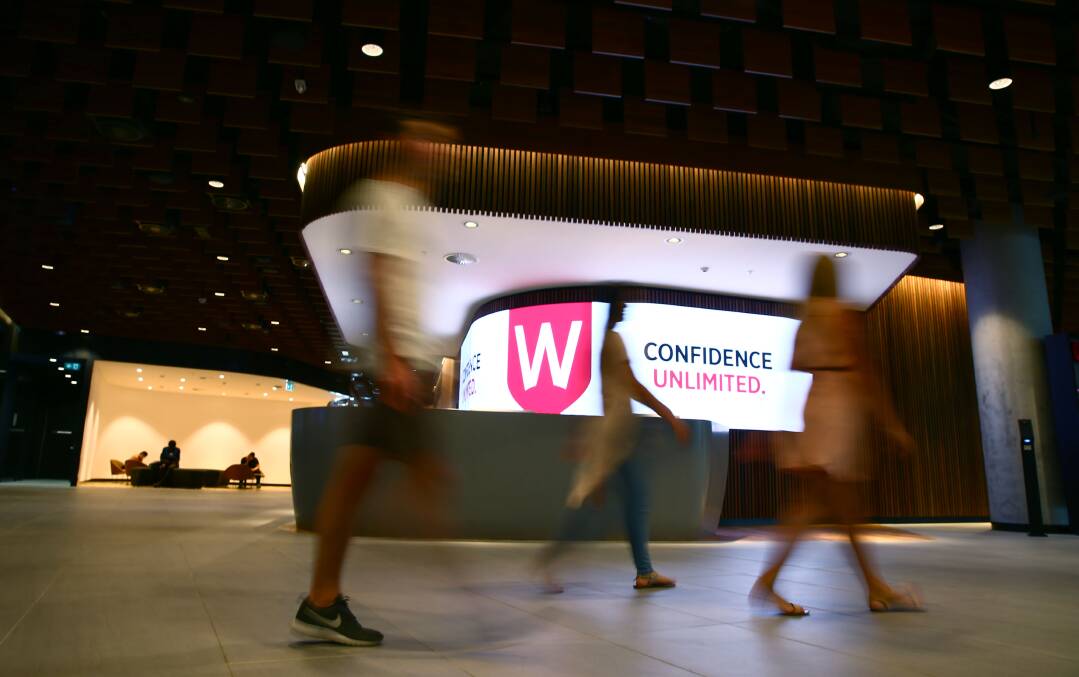
Experts fear Australian scientific integrity could be at risk after Western Sydney University entered a partnership with an Indian health ministry which has promoted unproven COVID cures and pseudoscience.
It comes as Australia and India inked a historic deal to recognise to qualifications between the two countries and Deakin University announced its first teaching campus in Gujarat.
Western Sydney University appointed a joint academic chair of ayurvedic medicine with the Indian government's Ministry of Ayush in November last year with the aim of promoting research into traditional Indian medicine.
Neuroscientist Dr Sumaiya Shaikh said she had concerns over the ministry's credibility as their research methods were not rigorous and the findings were not published in reputable journals.
She said Ayush's studies had flaws such as a lack of appropriate statistics and sometimes a lack of controls.
"The studies were planned really badly. It's almost like they planned to set up for failure," Dr Shaikh said.
Western Sydney University and Ministry of Ayush signed a MoU today to appoint a AYUSH Academic Chair for research in Ayurvedic Medicine.#India@75 @MEAIndia @moayush pic.twitter.com/mhEXA0s1Um
— India in Australia (@HCICanberra) September 2, 2021
Veteran Indian health and science journalist Vidya Krishnan said the current Indian government kept peddling Ayush remedies as preventative against COVID-19 infections despite a lack of evidence.
The ministry advised people to take Arsenicum Album 30, which contains microscopic amounts of arsenic, an unproven herbal remedy called Coronil and a host of other untested practices.
"In the last eight years and especially since the pandemic, India's chronically underinvested public health system has become more difficult to access for the common citizen," Ms Krishnan said.
"Combined with an unprecedented scale of science denialism, we have a dangerous situation where a lot of quackery is state-sponsored."
The Ministry of Ayush was contacted for comment but did not respond.
In November last year, Western Sydney University announced the appointment of Associate Professor Shrikrishna Rajagopala from the All India Institute of Ayurveda as the academic chair in ayurvedic medicine.
The university was asked whether it had taken the Ministry of Ayush's history of misinformation into consideration and what due diligence it undertook in evaluating the integrity of this partnership.
A university spokesperson said: "Western Sydney University is committed to delivering high-quality, world-class research and maintains the highest standards of integrity in research governance and legislative requirements.
"The chair's role is to provide leadership to develop collaborative research strategies for the scientific base of Ayurveda, and the translation and integration of evidence-based Ayurveda interventions into conventional healthcare."
The spokesperson said Associate Professor Rajagopala was appointed through a competitive process and will commence his role from June 2023.
"Western Sydney University will support the local expenses of the visiting professor during his stay in Australia. Funding for this initiative will be sought from various research grant schemes," the spokesperson said.
It is understood that Western Sydney University vice-chancellor Barney Glover did not meet with any representatives from the Ministry of Ayush during his visit to India last week.
A contingent of Australian university leaders, Prime Minister Anthony Albanese and Education Minister Jason Clare visited India to promote stronger education ties between the two nations.
A Department of Education spokesperson said it was aware of the Western Sydney University partnership and that all Australian universities were supported to manage the risk of foreign interference through the Guidelines to Counter Foreign Interference in the Australian University Sector.
Australian National University Associate Professor of Medicine Sanjaya Senanayake said it was important to have appropriately run clinical trials before traditional medicines were prescribed to patients.
"If Ayurvedic practitioners want to show that their medications work and can be used more widely in a Western medicine setting, then you have to prove it. You have to go through the same rigorous trials that all the other medications and operations and interventions we use do," Professor Senanayake said.
Ayush practitioners are ethically corrupt when it comes to science or medical practices. Routinely administering mainstream drugs without much understanding of the drug targets or interactions. https://t.co/eZk3ENCPx0
— Dr Sumaiya Shaikh 🇦🇺🇸🇪🇪🇺 (@Neurophysik) February 14, 2021
Professor Senanayake said Ayurvedic medicine could have potential for treating non-life threatening health problems, such as clogged sinuses, chronic back pain or sciatica. He said there could be a conflict of interest if the body promoting that type of medicine was also funding a study, however this could be mitigated through the peer-review process.
"I'll keep an open mind as long as you can show me the evidence because at the end of the day, I have to pass this on to a patient who's trusting me to make the right decision in their interest," Professor Senanayake said.
Dr Shaikh said she hoped the project would be held to the same regulations and standards as other medicine.
"Get them to go through the same processes. And if there's evidence, great. If there isn't, there isn't. It's as simple as that," Dr Shaikh said.
We've made it a whole lot easier for you to have your say. Our new comment platform requires only one log-in to access articles and to join the discussion on The Canberra Times website. Find out how to register so you can enjoy civil, friendly and engaging discussions. See our moderation policy here.







